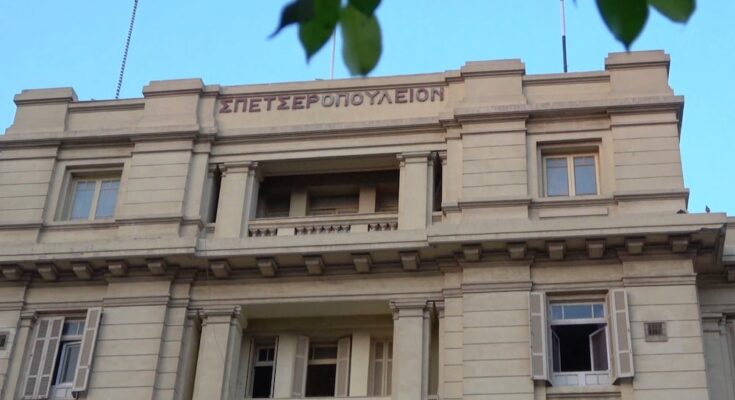The small, but vibrant, remaining Greek community in Cairo, Egypt has its roots deep in history.
These are no mean achievements for the Greeks of Cairo, who since the mid-1950s have abandoned Egypt in droves. Until the nationalization drive of the Nasser era, tens of thousands of Greeks lived — and flourished — there in the fields of business and agriculture as well as in the realm of the arts.
After years of restoration work, the historic Saints Constantine and Helen Greek Orthodox Church, which was built in 1914 and dominates the center of the Egyptian capital, was reopened.
A few years ago, the Greek Hospital of the city was expanded and refurbished with an outpatient clinic, becoming a completely modernized, state-of-the-art facility.
Today, the size of the Greek community is a great deal smaller, numbering only several hundred, although many people of Greek origin are now counted as Egyptians, having changed their nationality officially.
The Greek community of Cairo, Egypt
Most Greeks in Cairo say that they feel both Greek and Egyptian. “We have two homelands. We don’t distinguish the one from the other,” Leonidas Fontrie said.
“When in Cairo I feel Egyptian, when in Greece I feel Hellene,” said student Aris Grustein, who the Greek Reporter met sitting with his friends at the Greek Center of Heliopolis, a suburb just outside Cairo.
Apart from the Sts. Constantine and Helen church, several other Orthodox churches remain in Cairo, including Saint Nicholas and Saint George, historic places of Christian worship in this predominantly Muslim country.
Greeks have been present in Egypt since at least the 7th century BC. Herodotus visited Egypt in the 5th century BC and claimed that the Greeks were one of the first groups of foreigners who had ever lived in the country.
Beginning in the mid 19th century, tens of thousands of Greek citizens emigrated again to Egypt, mainly to the great cities of Alexandria and Cairo, strengthening the bonds between the two ancient civilizations on either side of the Mediterranean.
The first organized Greek community in Cairo in modern times was founded in 1856, with the community based in three main neighborhoods: Tzouonia, Haret el Roum (Street of the Greeks), and in Hamzaoui.
The construction of many Greek schools, churches, and societies scattered all around the city soon followed.
“The Greek Club of Cairo,” located near the center of the city, is a place where generations of Greek expatriates have spent their free time, talking business, politics and diaspora issues. It is still open today — and still offers delicious Greek food.
“It’s a historic and symbolic meeting point. The Greek Club of Cairo hosted all the major personalities of the previous decades,” says Nikos Katsikas.
Today, there are just a few dozen students in various grades at the Achillopouleios School, which since 1928 has been housed in the building of the former Spetseropouleios Orphanage.
Apart from the lessons that are being taught in all the schools in Greece there are also classes teaching the Arabic language, as well as the history and geography of Egypt, which are taught by Egyptians.
Many Egyptian children whose parents were immigrants to Greece also attend classes there.
The building is an example of classic Greek architecture, and a number of priceless relics and great works of art are kept in its august halls and classrooms.
During the last decade, there has been a renewed interest from the Egyptian government for a diplomatic rapprochement with Greece, and this has positively affected the Greek diaspora.
The Greek community in Egypt has received a number of official visits from many Greek politicians over the years, and economic relationships between Greece and Egypt have expanded apace.
As of 2010, Egypt had received a number of new major Greek investments in the areas of banking, tourism, paper, and the oil industry, as well as many other fields.
Related Video:



